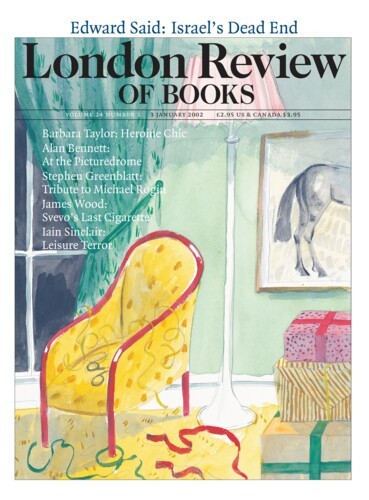In his ‘Autobiography’, Benvenuto Cellini (1500-71) tells of summoning demons in the Roman Colosseum with the aid of a priest adept in the black arts. The next night, in hopes of clearer communication with the underworld, they return and call up the demons again.
This time his spells produce
a larger, more unruly crowd from hell.
The priest looks pleased, a little anxious, too.
‘Benvenuto,’ he says, ‘ask them again.’
Cellini repeats his request: Unite me
with Angelica, who’s stuck in Sicily
under the watchful eye of her suspicious mother.
Two other friends, plus an innocent
shopboy from his studio brought along
to soften the devils’ hearts,
nervously attend to the perfumes
and incense needed to keep the whispering
spirits at a distance. ‘They’re saying,’
the priest explains, ‘that you’ll find yourself
where she is in about a month.’
But now things take a nasty turn:
the infernal creatures, far more of them
than the priest had meant to summon,
start to advance, flexing their claws
and stingers, flapping their wings.
Thoroughly spooked, these being
‘the most dangerous of all
the denizens of hell’, the priest tries
talking to them ‘softly and gently’,
but he’s wasting his breath.
Four ‘enormous giants’ have arrived.
A terrible buzzing racket is getting louder
The whole Colosseum is bursting into flame.
Showing, in his words, ‘marvellous
bravery’, Cellini rallies his cowering
companions. Then, to their astonishment,
they hear the pealing of matin bells.
As the heights of the famous ruin take shape
in the oncoming dawn, the devils murmurously
disperse, some casting angry backward
glances, others looks that say
they know too well where they are.
Cellini and the rest abandon their smoke pots
and bouquets of magic herbs. Holding on to each other
like schoolchildren, they hurry from the stadium,
already laughing at the risk they’ve run,
looking forward to breakfast or spending the day
in bed, Cellini, as usual, eager to finish
yet another bauble for the future
to marvel at. His shopboy anxiously
points out that a couple of devils he saw earlier
are traipsing along ahead,
now on rooftops, now on the unswept street.
Which is where Cellini leaves them marooned
on an early morning in 1534,
two imps who could pass for chimney sweeps
standing open-mouthed, amazed
at how the sun flows on stucco and stone, how the air
carries with such tenderness and force
the aroma of baking bread, the yapping of dogs,
the voices of people talking to each other.
Send Letters To:
The Editor
London Review of Books,
28 Little Russell Street
London, WC1A 2HN
letters@lrb.co.uk
Please include name, address, and a telephone number.

